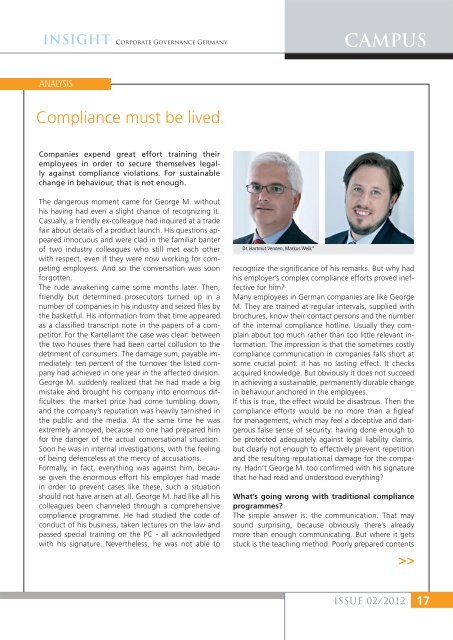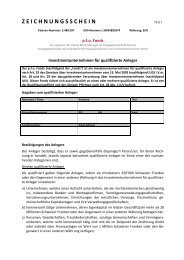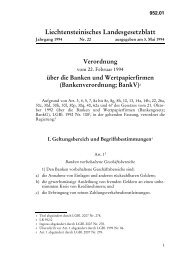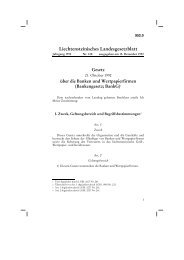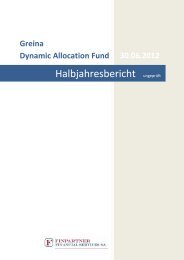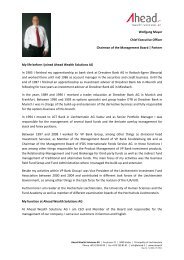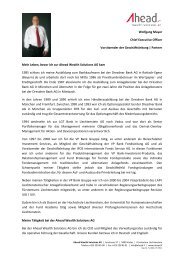iNSiGht - Intro
iNSiGht - Intro
iNSiGht - Intro
Create successful ePaper yourself
Turn your PDF publications into a flip-book with our unique Google optimized e-Paper software.
insight corporate Governance Germany<br />
ANALYSIS<br />
Compliance must be lived<br />
Companies expend great effort training their<br />
employees in order to secure themselves legally<br />
against compliance violations. For sustainable<br />
change in behaviour, that is not enough.<br />
The dangerous moment came for George M. without<br />
his having had even a slight chance of recognizing it.<br />
Casually, a friendly ex-colleague had inquired at a trade<br />
fair about details of a product launch. His questions appeared<br />
innocuous and were clad in the familiar banter<br />
of two industry colleagues who still met each other<br />
with respect, even if they were now working for competing<br />
employers. And so the conversation was soon<br />
forgotten.<br />
The rude awakening came some months later. Then,<br />
friendly but determined prosecutors turned up in a<br />
number of companies in his industry and seized files by<br />
the basketful. His information from that time appeared<br />
as a classified transcript note in the papers of a competitor.<br />
For the Kartellamt the case was clear: between<br />
the two houses there had been cartel collusion to the<br />
detriment of consumers. The damage sum, payable immediately:<br />
ten percent of the turnover the listed company<br />
had achieved in one year in the affected division.<br />
George M. suddenly realized that he had made a big<br />
mistake and brought his company into enormous difficulties:<br />
the market price had come tumbling down,<br />
and the company’s reputation was heavily tarnished in<br />
the public and the media. At the same time he was<br />
extremely annoyed, because no one had prepared him<br />
for the danger of the actual conversational situation.<br />
Soon he was in internal investigations, with the feeling<br />
of being defenceless at the mercy of accusations.<br />
Formally, in fact, everything was against him, because<br />
given the enormous effort his employer had made<br />
in order to prevent cases like these, such a situation<br />
should not have arisen at all. George M. had like all his<br />
colleagues been channeled through a comprehensive<br />
compliance programme. He had studied the code of<br />
conduct of his business, taken lectures on the law and<br />
passed special training on the PC - all acknowledged<br />
with his signature. Nevertheless, he was not able to<br />
Dr. Hartmut Vennen, Markus Weik*<br />
CAMPUs<br />
recognize the significance of his remarks. But why had<br />
his employer’s complex compliance efforts proved ineffective<br />
for him?<br />
Many employees in German companies are like George<br />
M. They are trained at regular intervals, supplied with<br />
brochures, know their contact persons and the number<br />
of the internal compliance hotline. Usually they complain<br />
about too much rather than too little relevant information.<br />
The impression is that the sometimes costly<br />
compliance communication in companies falls short at<br />
some crucial point: it has no lasting effect. It checks<br />
acquired knowledge. But obviously it does not succeed<br />
in achieving a sustainable, permanently durable change<br />
in behaviour anchored in the employees.<br />
If this is true, the effect would be disastrous. Then the<br />
compliance efforts would be no more than a figleaf<br />
for management, which may feel a deceptive and dangerous<br />
false sense of security: having done enough to<br />
be protected adequately against legal liability claims,<br />
but clearly not enough to effectively prevent repetition<br />
and the resulting reputational damage for the company.<br />
Hadn’t George M. too confirmed with his signature<br />
that he had read and understood everything?<br />
What’s going wrong with traditional compliance<br />
programmes?<br />
The simple answer is: the communication. That may<br />
sound surprising, because obviously there’s already<br />
more than enough communicating. But where it gets<br />
stuck is the teaching method. Poorly prepared contents<br />
>><br />
issue 02/2012 17


